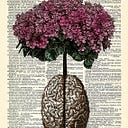Member-only story
Reviving Islamic Wisdom on Mental Health
Psychotherapy as an Islamic Heritage
Subscribe to my email list to receive notifications about future articles
Muslim psychotherapists, especially those trained in the West, are walking a path between two worlds. Our basic worldview adheres to the principles of Islam, while our clinical techniques are informed mostly by secular values. This can lead to situations where our personal and professional attitudes towards clinical situations are totally different — and sometimes, even contradictory.
Is this double-life an inevitable part of the Muslim psychotherapist’s profession? Maybe not. The history of Islamic thought provides us with a rich repertoire of psychotherapeutic ideas, all rooted in an Islamic framework, and all relevant to modern-day theory and practice. From this basis, an indigenously Islamic psychotherapy can be constructed.
Let’s read about four great thinkers from the period of cultural and intellectual flourishing known as the Islamic Golden Age, each of whom made important contributions to psychotherapy — the “healing of the soul” — and see what they can teach us about a psychotherapy rooted in Islam.
al-Kindi
In any historical phenomenon, somebody has to pave the way. al-Kindi represents one of the…
